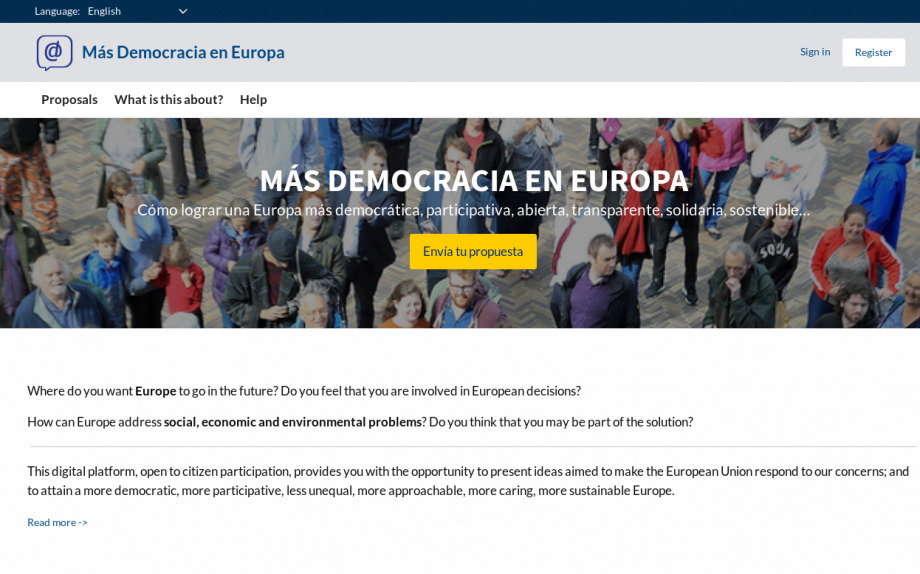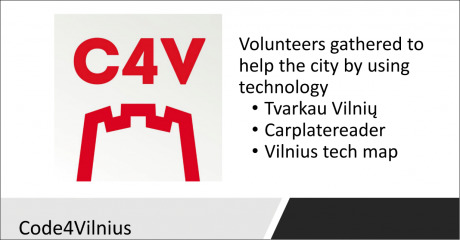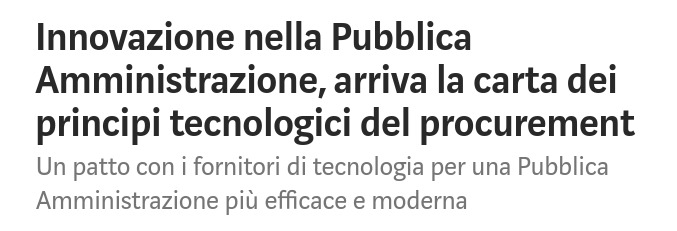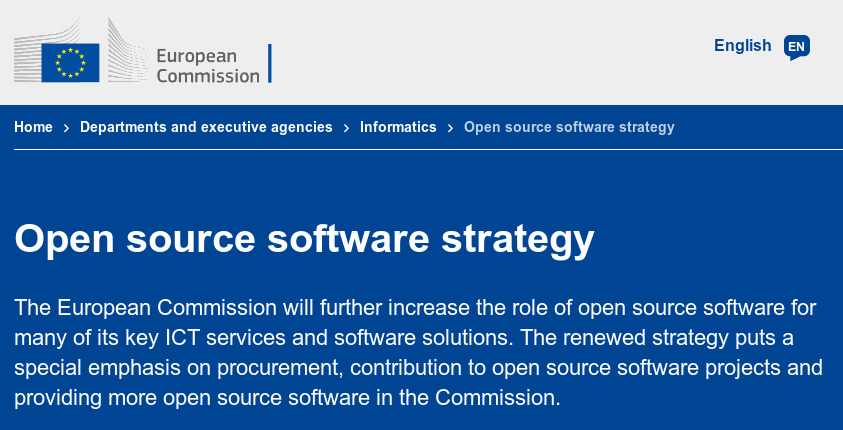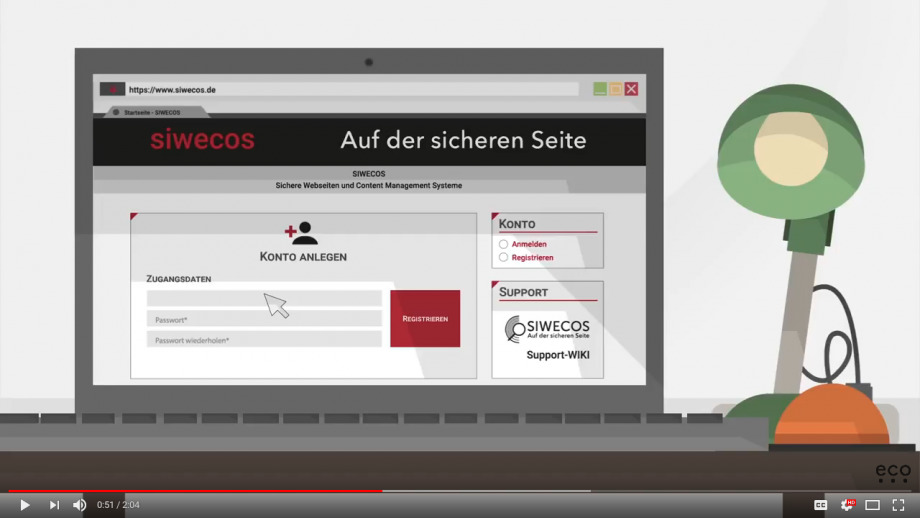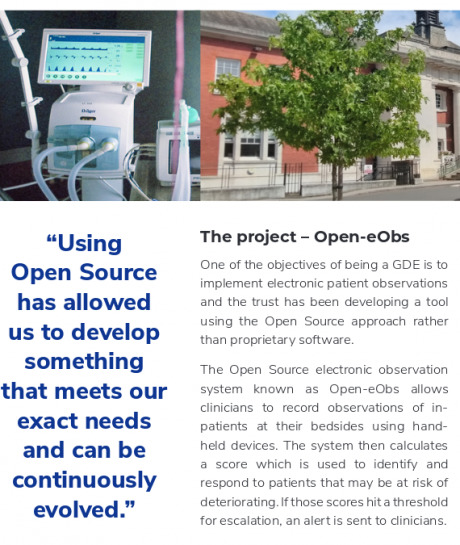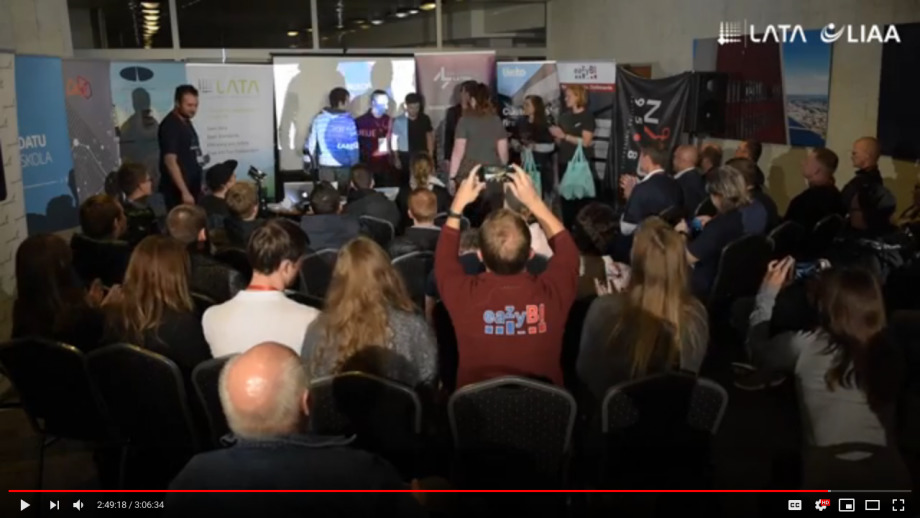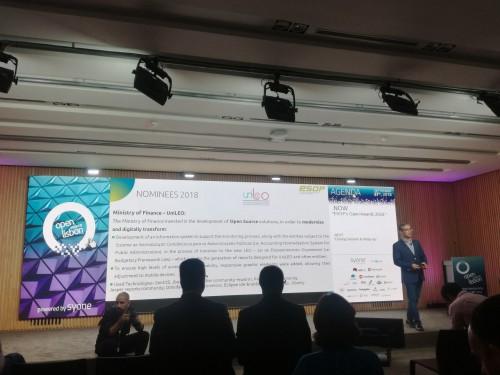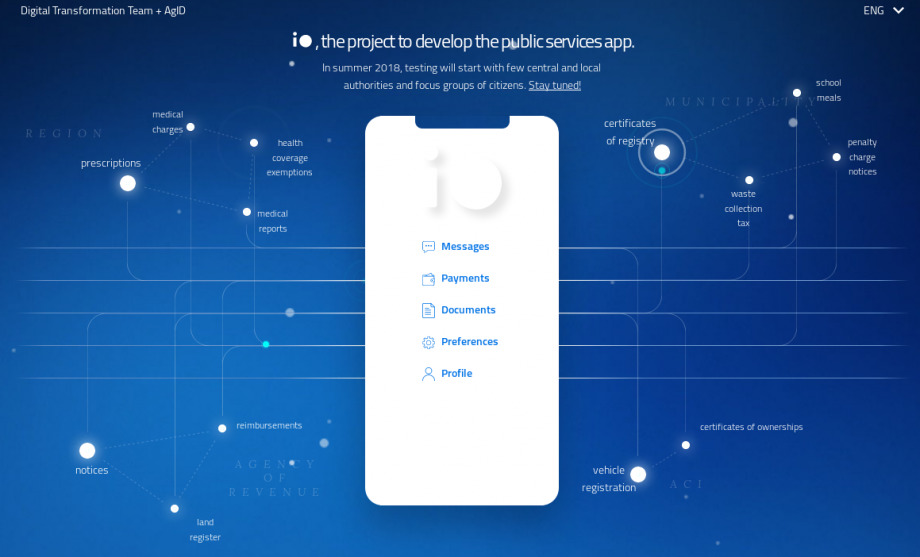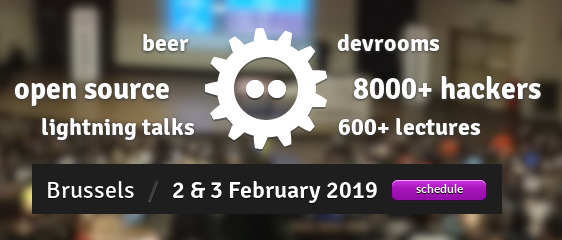|
|

|

|
|
|
|
|

|
Open Source Observatory (OSOR) newsletter
|
|
|
|
|
|
|
follow us :

|
|
|
|
|
|
|
Changing words into loud actions
|

|
|
|
|
|

|
|
Public services are all about documents. They use documents for everything: to lay down laws and pass on policies, to communicate, print permissions and levy taxes. Sure, the age of paper documents is coming to an end, but it it will be awhile before all paper-based processes are replaced by authenticated web-forms and authorised smartphone apps. (Italy is trying: see our article on a mobile app for eGovernment services.)
So it is inconceivable that public services will ever be able to do without PC office tools to create these documents: texts underpinned with spreadsheets and presentations. This makes it crucial that governments use open technical document specifications. For editable documents, there is only one real option: the Open Document Format (ODF, ISO 26300). ODF is supported by many commonly used office productivity tools. The standard is recognised by all European Member States as well as by the European institutions.
Unfortunately, in practice it is not used much.
The public sector continues to rely on a mix of document formats that are either proprietary or not fully supported. This causes document interoperability problems and increases complexity. It is also a barrier to public administrations that want to use open source office solutions.
In September, the European Commission's Open Source Observatory reported on the renewed push by ODF advocates to promote the uptake of the standard. In recent years, OSOR has reported on active ODF support from the Dutch government, cities and ministries in France, towns in Germany, courts in Switzerland, and health care organisations in the UK.
The other Member States and the European institutions should follow in those footsteps. There are many things that can be done: host the next ODF Plugfest, finance interoperability fixes, contribute to the next version of the standard, support the development of ODF-based open source solutions. But the loudest – and easiest – action they can take is to actually use the standard.
|
|
|
|
|
|
|
Latest News
|
|
|
|
Renewed push for adoption of ODF document standard
|

|
|
The Document Foundation, the organisation supporting the development of LibreOffice, is calling for supporters to promote the use of Open Document Format (ODF). Standardisation organisation OASIS would welcome and assist renewed marketing efforts, as would the Open Source Initiative.
|
|
|
|
|
|
|
Estonia and Finland publish first joint X-Road release
|

|
|
The Nordic Institute for Interoperability Solutions (NIIS), a public service started in August 2017 by Estonia and Finland, is making available its first two extensions for X-Road, an open source eGovernment data exchange solution originally developed and used by Estonia. The new extensions make it easier to build new services based on X-Road.
|
|
|
|
|
|
|
Open-source RISC processors making waves in research and industry
|

|
|
It's still early in terms of silicon implementations, tooling and operating system support, but the open RISC-V processor specification is making inroads in the processor world. As RISC-V Marketing Manager Ted Marena wrote at the beginning of this year on on IEEE Times, RISC-V is to open hardware what Linux has been to open-source software.
|
|
|
|
|
|
|
Bulgaria prepares to build its own central code repository
|

|
|
In November, Bulgaria’s state eGovernment agency SEGA (Държавната агенция „Електронно управление“ ДАЕУ) will award a contract for building the country’s open source code repository. SEGA began studying submitted proposals this Tuesday. The repository, to be based on Git, will be hosting source all software newly developed by or for Bulgaria’s public services.
|
|
|
|
|
|
|
European cities reuse Madrid’s open source citizen participation solution
|

|
|
Consul, the citizen participation platform shared as open source by the city of Madrid (Spain), is being implemented in 18 countries across the world. In Spain, Consul is used by over 40 villages, towns and cities. In Europe, Consul is also used by Paris and Aude (France), Turin (Italy), and Tirana (Albania), while Madrid has recently been in touch with towns and cities in Bulgaria, Italy, Germany, Malta, the Netherlands, Slovenia and Poland.
|
|
|
|
|
|
|
Vilnius: “Open source improves our public services”
|

|
|
The city of Vilnius, Lithuania’s capital and with over half a million inhabitants the country’s largest city, is increasingly using open source software. The most recent example is WordPress: in July the city unveiled its new portal built on this content management system. “Open source enables us to improve our public services and empowers us to share our solutions and data,” says Dalius Kazlauskas, senior project manager at Vilnius’ E-City department.
|
|
|
|
|
|
|
Building smart cities on the open-source Things Network
|

|
|
LoRa, a low-power, long-range radio technology for networks on a municipal scale, provides a low-cost infrastructure on which municipalities can build a plethora of Internet-of-Things (IoT) applications.
|
|
|
|
|
|
|
Italy’s Team Digitale urges use of technological principles in ICT procurement
|

|
|
The Digital Transformation Team of the Italian government is calling on buyers and sellers of public sector ICT solutions to apply 16 technological principles, including the use of open ICT standards and making available source code as open source. ‘Team Digitale’ hopes to get all of Italy’s procurers and ICT solution vendors to agree.
|
|
|
|
|
|
|
Dutch government to remove legal barriers to sharing code as open source
|

|
|
The Dutch government plans to remove legal roadblocks to allow public services to publish the source code of their ICT solutions. A pending proposal from the government to the parliament will change the country’s rules of conduct that minimise interference with the private sector. Next year, the government will begin encouraging public services to publish their source code publicly.
|
|
|
|
|
|
|
OpenEuropa developers contribute to open source
|

|
|
OpenEuropa’s software developers working on the European Commission’s Drupal-based software projects also contribute to related open source projects. When they come across a bug in a component needed for their EC projects, and they know how to fix it, they submit patches to help the upstream projects move forward. On Wednesday 12 September at the DrupalEurope conference in Darmstadt (Germany) members of the OpenEuropa team will talk about the ways they can contribute to open source projects.
|
|
|
|
|
|
|
Germany funds open source security check for SMEs
|

|
|
Germany’s federal Ministry for Economic Affairs and Energy has been funding a 26-month project to help small and medium-sized companies avoid IT security issues when using open source content management systems. The project started in September 2016 and will end in November this year. The project is now looking for sponsors to continue the online service. “The costs are low as it’s mostly hosting costs,” says David Jardin, one of the developers involved.
|
|
|
|
|
|
|
South London healthcare service validates its open source approach
|

|
|
The development of Open-eObs, a bedside observation software solution to improve hospital care, confirms the value of open source software for the UK’s South London and Maudsley NHS Foundation Trust. The software was developed and tested in cooperation with hospital staff. The trust is encouraging other healthcare organisations to reuse the software and pool resources to build future versions.
|
|
|
|
|
|
|
French working group Mimo withdrawn from the LibreOffice community
|

|
|
The Document Foundation, an open source institution in charge of the governance of the LibreOffice suite, has decided to withdraw the French government's participation in its advisory board. The French government had been represented in the community since 2013 through the Mimo inter-ministerial working group.
|
|
|
|
|
|
|
Hackathon award for Latvian open source preschool directory
|

|
|
CareQueue, an open source project that presents public data on preschools, won last week’s Open Data Hackathon 2018 in Riga (Latvia). The software plots preschools on a map, showing space availability and waiting list times. The developers have combined data from the municipality and the national open data portal; however the software was developed specifically to make it easy to adapt to other cities and countries.
|
|
|
|
|
|
|
Trade group praises Portuguese public sector project
|

|
|
The use of open source at Portugal’s Institute for Justice Financial Management and Infrastructures (IGFEJ), funded by the Ministry of Finance, has been praised by ESOP, the country’s trade group for open source IT service providers. IGFEJ uses open source software to run an online service for citizens to request certificates related to court cases.
|
|
|
|
|
|
|
Croatia’s customs to switch to open source for core business system
|

|
|
Croatia’s Customs Administration wants to switch some of its core business systems to open source. The organisation is looking for specialists who can help build a new Linux-based server infrastructure for its risk and ICT assets management systems, while reusing the organisation’s high-performance IBM Power systems.
|
|
|
|
|
|
|
Italy about to test its mobile app for eGovernment services
|

|
|
Italy’s Team Digitale, the government digital transformation team, is about to start testing a smartphone app for its IO service, which will provide citizens with easy access to all kinds of government services. The entire software stack is open source, and the code comments and nearly all of the documentation are written in English to encourage international cooperation.
|
|
|
|
|
|
|
e-invoicing library "Mustangproject" publishes new version
|

|
|
The Mustangproject published version 1.5.4 of it's open source java e-invoicing library for ZUGFeRD.
|
|
|
|
|
|
|
Latest Studies
|
 |
|
|
|
'Buy from startups' strategy pays off for City of Antwerp
|

|
|
A new administrative coalition has forced Digipolis Antwerp to rethink its procurement policy. In 2015 the City of Antwerp reorganised its ICT architecture from silo-based systems dependent on large suppliers to a modular approach, for which the re-usable components are provided by a network of startup companies.
|
|
|
|
|
 |
|
|
|
Berlin Technical University and Nextcloud: showing public services how to interact with open source projects
|

|
|
Public services commonly wonder how to interact with fluid communities of open source developers and users. The seven-year relationship between the Technische Universität Berlin and the developer community of Nextcloud, an open source solution for cloud storage, file sharing and file synchronisation, shows how such a relationship can be both easy and mutually beneficial.
|
|
|
|
|
 |
|
|
|
Open source makes Dutch government cloud a reality
|

|
|
The Dutch government’s data centre in Groningen (ODC-Noord) is becoming the benchmark for all of the government’s cloud services. ODC-Noord combines the open source cloud infrastructure OpenStack with the open source storage platform Ceph. The resulting cloud service is proving enormously scalable, while keeping costs low. As a result, the list of government clients using ODC-Noord’s cloud services is growing rapidly.
|
|
|
|
|
|
|
|
|
|
Upcoming Events
|
|
|
|
|
|
|
|
|
|
|
|
|


